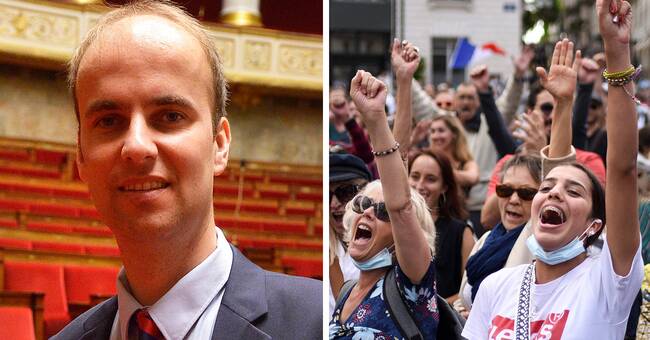For the fourth week in a row, hundreds of thousands of French people have gathered to protest against demands for health passes and mandatory vaccination.
France is far from the only country where demonstrations due to the pandemic have taken place, but the intensity has skyrocketed.
How is it that the French in particular demonstrate so dedicatedly?
The reasons are many, according to Christophe Premat who is a political scientist at Stockholm University and an expert on French politics.
Frustration and mistrust
He mentions, for example, that the yellow protests of the yellow vests against the government were interrupted by the pandemic.
France has since then, unlike Sweden, been shut down and frustration among the population has grown.
- It's like you've put everything in a saucepan and now lift off the lid, says Christophe Premat.
He describes the political parties as weak and believes that France is a divided country.
"Because mistrust of the government is so great in France, they want to have the political discussion directly," says Premat.
Concerns about lost rights
The political scientist believes that there is a concern in the country that certain rights will disappear with the new laws that were enacted due to the pandemic.
He explains that structures in French society mean that protests are much closer at hand for French people than for Swedes.
- In Sweden, people think it is strange to demonstrate.
In France, the opposite is true.
One must be prepared to pressure the government to get good agreements.
It's a different mentality.
Christophe Premat explains that the French tend to protest proactively rather than reactively, for example to ensure that the minimum wage is raised in the coming year.
The French Revolution, the May Revolution of 1968 and the Yellow West have put France on the protest map.
According to Premat, protesting is not just a tradition, it is a way of being social.
- For some French people, it's like an excursion.

